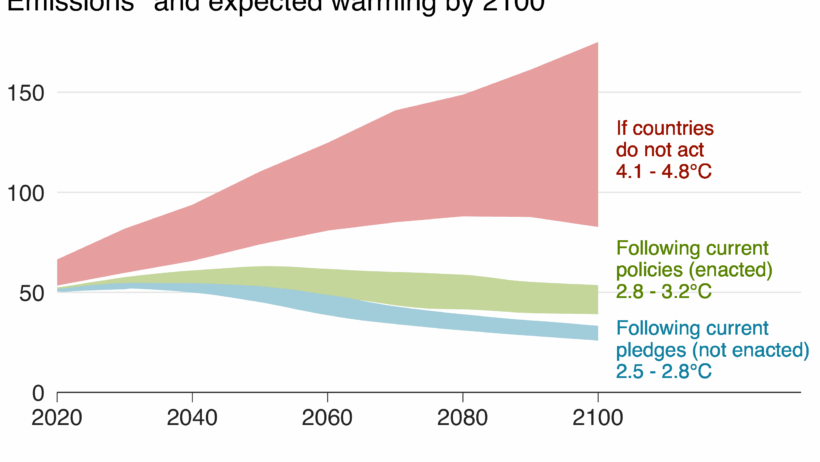Climate change has emerged as one of the most pressing issues of our time, reshaping the landscape of environmental management. The phenomenon of global warming is not merely a distant concern; it has begun to impact ecosystems, economies, and communities around the globe. This article will explore how the realities of global warming necessitate changes in environmental management practices, giving rise to innovative strategies that reveal a deeper engagement with both natural and human systems.
One of the most notable manifestations of climate change is the increase in extreme weather events. These disturbances disrupt established ecological balances and can lead to significant biodiversity loss. Adapting to these changes requires a multifaceted response from environmental managers. Firstly, the focus has shifted toward enhancing resilience within ecosystems. Resilience—the capacity of an ecosystem to recover from disturbances—has become a key priority. Strategies such as the restoration of native habitats, conservation of existing ecosystems, and the creation of wildlife corridors are instrumental in fostering this resilience.
Moreover, the changes wrought by global warming have elucidated the necessity for integrated approaches to environmental management. Traditional single-species conservation efforts have now given way to more holistic practices that consider entire ecosystems and their interdependencies. This integrated approach recognizes that species do not exist in isolation; they are part of complex networks that are profoundly affected by climate fluctuations. For example, the decline of a single species can reverberate throughout the food web, leading to unforeseeable consequences. Therefore, current environmental management efforts strive to maintain ecological integrity by preserving a diversity of species and their habitats.
In addition to addressing biodiversity, environmental management has also adapted by placing a greater emphasis on the socio-economic dimensions of climate change. There exists a pervasive recognition that environmental issues are intricately linked with social issues, particularly in developing nations that often bear the brunt of climate impacts. Vulnerable populations frequently rely on natural resources for their livelihoods, making them acutely susceptible to the repercussions of global warming. As such, environmental policies must encompass socio-economic strategies aimed at empowering communities to engage in sustainable resource management. This includes promoting local stewardship, where communities are actively involved in the protection and management of their environments.
The phenomenon of climate migration has emerged as another critical component influencing environmental management. As certain areas become increasingly inhospitable due to rising sea levels, extreme droughts, or Hurricanes, populations are forced to migrate. This movement can lead to conflict over resources, particularly in regions where scarcity is already a pressing concern. Environmental managers must consider these socio-political dynamics in their strategies. Collaborating with urban planners, social scientists, and policymakers will be essential in creating spaces that are adaptable and resilient. Such interdisciplinary cooperation can lead to innovative solutions, such as the development of green infrastructure that accommodates both human needs and environmental sustainability.
Technological advancements have also played a crucial role in reshaping environmental management in response to global warming. With the burgeoning field of data analytics, environmental managers can now make informed decisions based on predictive models and simulations. By employing GIS (Geographic Information Systems) and remote sensing technologies, managers can monitor environmental changes in real-time, allowing for proactive rather than reactive responses. For instance, data-driven approaches can identify areas under threat from climate change and prioritize them for conservation efforts, helping allocate resources more efficiently.
Moreover, the rise of renewable energy technologies has prompted a complete reevaluation of energy consumption and its environmental impacts. The shift towards sustainable energy sources—such as solar, wind, and hydroelectric power—has not only reduced greenhouse gas emissions but also transformed the landscape of environmental management. Energy policies must now align with environmental goals to facilitate cleaner production processes and decrease reliance on fossil fuels. This intersection of energy and environmental management signifies a progressive shift toward sustainability.
Education and public engagement also play pivotal roles in the adaptive strategies of environmental management. An informed populace is more likely to engage in environmentally friendly practices and support policies that mitigate climate change. Therefore, outreach programs aimed at raising awareness about climate change’s consequences are essential. By cultivating a sense of stewardship and responsibility within communities, environmental management can foster a culture of sustainability that transcends generations.
As with any transformative endeavor, the journey towards adapting environmental management to the realities of global warming is fraught with challenges. Politically, there is often resistance to change, as entrenched interests can impede the implementation of necessary policies. Additionally, the financial resources required for large-scale adaptations can be daunting. However, the urgency of the situation compels action. The imperative to act swiftly and decisively in reducing greenhouse gas emissions while simultaneously preparing for the inevitable impacts of climate change cannot be overstated.
In conclusion, the reshaping of environmental management in response to global warming is not merely a response to changing climatic conditions; it is a profound reconceptualization of our relationship with the environment. It necessitates an intricate balancing act—one that reconciles ecological integrity, socio-economic equity, and technological innovation. By embracing a holistic and adaptive framework, environmental management can pave the way for a more resilient future, not just for our ecosystems, but for humanity as a whole. As we navigate through these unprecedented changes, the importance of collaboration, education, and sustainable practices remains paramount in ensuring that we protect our planet for generations to come.








